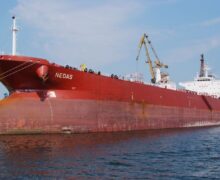
BASIC ECONOMICS & SOME TRADE TERMS – F R Chowdhury (1st Batch)
Money supply: The total value of currency in circulation must be supported by realistic wealth commonly referred to as “Reserve”. In old days the term reserve would refer to the amount of gold held in the Government’s vault in other words with the Central Bank. Now a day the reserve comprises only a part by gold and rest by reserve currency such as Dollar, Pound, Euro and Yen. The value of currency is directly related to the amount of reserve. It is often written on a currency note “Promise to pay the bearer a sum of (equivalent to the face value of the currency)”. The value of currency will, to some extent, fluctuate with the amount of reserve held by the Government. The reserve itself will fluctuate with the economic performance of the State.
Bank Notes: The central bank issues bank notes in relation to the reserve. However, the government/ treasury issue coins and some time notes of lower denomination (smaller values) to facilitate local/ domestic transactions. They are not acceptable in exchange market.
Why gold is the basic monetary standard: Supply of gold is limited. It has no industrial use. It is often more expensive to produce gold than its actual value.
Gross domestic product (GDP): Total value of goods and services produced in a country. The term goods shall include all agricultural and industrial products including basic raw materials and energy sources available within the country. The term services shall include all invisible income such as banking, insurance, shipping, aviation, tourism and remittance by work force employed overseas or return of investment overseas.
GDP per-capita: The figure obtained by dividing the GDP by population.
Economic growth: It is normally expressed in terms of percentage of the GDP as to how much the economy has grown within a year.
Inflation: It is also expressed in percentage. It denotes the general increase in prices in the market, in other words it is the percentage loss of buying power of a monetary unit.
Real growth: Economic growth is evidently linked with some inflationary trend. Real growth is the figure obtained after subtracting inflation from the economic growth. A country which achieves 3.5% economic growth at the expense of 1.5% inflation will be considered to have achieved 2% real growth.
Negative growth: A dangerous thing to happen to a country when the inflation exceeds economic growth or in some exceptional cases when there is no economic growth at all.
Balance of trade: The difference between total value of import and export. The balance will be positive when export exceeds import (good for the economy). It shall be termed negative when import exceeds export (not so good for the country). A negative trade balance does not always mean overall deficit because the country may earn enough through invisible income to counter such negative effect.
Balance of payment: It shows the surplus or deficit in monetary transactions taking into consideration trade as well as all other financial transactions.
Invisible income: A major part of the international transaction takes place through trade (import and export). However, a State has other sources of foreign exchange earning. They are commonly referred to as “Invisible income” or “Service sector”. They include international banking, insurance, shipping, aviation, tourism, hotels and hospitality industry. In developing countries the remittance by labour force employed abroad is also a big source of foreign exchange earning. In developed countries it is the share of profit from investment abroad or royalty earned from sale of brand names.
Budget: It is an estimate for the income and expenditure of the Government. Depending on the revenue expected to be earned, the Government makes advance allocation of funds for maintaining public services (general administration including the police and judiciary) and public expenditure (in education, health, transport infrastructure etc.) in various sectors. Within the last three months of the financial year the Government normally makes a supplementary budget to adjust it more realistically with the revenue earned.
Revenue earned by the Government: The broad term is taxation. It includes – income tax, corporate tax, VAT (Value Added Tax, a sort of Sales Tax), export duty, import duty, excise duty (on goods produced/ manufactured locally), land revenue, licensing fees on trade and commerce, revenue from oil and gas concessions, profits from state owned enterprises etc. etc.
Surplus budget: In rare cases when the Government revenue exceeds expenditures, it is referred to as surplus budget. This gives an opportunity to the Government to make commitment for increased public expenditure in the following year.
Deficit budget: When the Government spends more than what it earns, it is referred to as deficit budget. The budget deficit is covered by public borrowing (the Government borrowing from the Central bank on behalf of the State) increasing the money supply and thereby giving rise to inflation.
Balance sheet: This gives the real picture of the economy of any project or business at any particular time. On one side we put the value of all assets (property, building, structure, vehicles, machinery, value of produce in stock, loan or borrowed money not shown in other assets, and any balance in the bank. On the other side the liabilities such as outstanding loan, any outstanding purchased on deferred payment, any other payment that the company has to make. If the liabilities exceed assets then company has to tighten expenses to bring in the balance.
Cash flow statement: This is a rough estimate of daily sales against expenses. Mean value of rent, licence fee, electricity, water, gas, telecommunication, insurance, wages and value of raw materials etc. are counted as expenses. On the other side the gross sales. If the expenses exceed sales then the business has to be restructured before losses accumulate.
Voyage analysis/ cash flow: Done on the same principle. All expenses are compared against total freight earned. Expenses include bunker, crew expenses, ship’s depreciation and maintenance cost, H&M and P&I insurance, port expenses at both ends, stevedoring, brokerage, commission and agency fees and any other expenses.
How banking contributes to economic growth:
1. Firstly it is a safe deposit rather than risking it at home;
2. Secondly it earns interest;
3. Bank cheques are convenient way of making payment without the need to carry huge sum of money physically;
4. Account to account transfer of money (through respective banks) reduces chances of theft or fraudulent activities;
5. Because banks keep deposits for many people, it may have enough money to lend for business purposes. The bank would like to be satisfied with the viability of the project and in some cases may insist on a collateral;
6. It is through a bank that trade documentation are exchanged. The L/C (Letter of Credit) is opened through a bank and the L/C can be cashed (by the shipper/ supplier) only on submission of the B/L (Bill of Lading) to the correspondent of the bank. International trade is not possible without banking;
7. Serve the purpose of money without increasing the money supply – Bank cheques and credit cards satisfy the requirement of payment but they are not real money. They do not increase the liability on reserve. In other words they facilitate trade and commerce without increasing the money supply.
Interest rate (Central bank): Central bank continuously monitors statistics relating to economic performance. If there is too much inflationary trend then bank immediately increases the interest rate making borrowing more expensive. This will limit the money in the market and hopefully increase the value of the currency (reduce inflation). When the economy is stagnant, the bank may lower interest rate to stimulate economic activities. The bank handles this delicate aspect of the economy very carefully. The bank advises Government from time to time. Sometime the Bank also warns the Government to limit public spending to balance the budget.
Purchasing Power Parity (PPP): This has to do with the cost of living (not necessarily with standard of living) in other words the purchasing power of the money. The GDP of all countries is normally expressed in terms of US dollars. The US price index is taken as standard unit i.e. US cost of living is taken as standard. If another country has the same GDP (as the USA) but lower cost of living then the PPP of that country will be considered to be higher than that of the United States. In a way one can say that though GDP of both countries are equal but real GDP of the country with lower cost of living is higher. If the other country (with same GDP as the USA) has a higher cost of living then that country would be considered to have a practically lower PPP/ GDP than the USA. The ultimate standard of living in a country can be determined by a combination of per-capita GDP with its purchasing power in other words how much goods and services an individual of that country can buy or enjoy (with respect to per-capita GDP in dollars).
L/C (Letter of Credit): After a purchase deal is agreed, the buyer arranges to open a “Letter of Credit” through a bank in favour of the seller for the sum agreed. The corresponding bank informs the seller, and when the goods are shipped in good condition the seller/ shipper exchanges the B/L (Bill of Lading) for the L/C, in other words s/he gets paid for it.
B/L (Bill of Lading): Several copies are issued after the goods are shipped – only two copies are signed which may be transacted/ negotiated. Others are to facilitate various formalities. The signed copies provide evidence of the goods having been shipped. It provides title to the goods. By signing on the back of the signed copies of the B/L the ownership of the goods may be transferred and the new owners may take delivery of the goods.
C&F (Cost and freight): This means a quotation that includes the price of goods including its shipment to destination.
CIF (Cost, Insurance & Freight): Same as above but also includes insurance. The insurance will provide risk coverage (to the extent of the value of the cargo) even in case of total loss of the ship.
FOB (Free on board): The quotation only includes the price of goods and delivery to the jetty/ wharf. The buyer opens L/C and nominates his ship, and advises date and time. Obviously it is the buyer who pays the freight.
Operational surplus: The earning of the factory/ plant after allowing for operational expenses but not taking into account the investment or the interest on investment or even depreciation.
Gross profit: Total profit before payment of taxes.
Net profit: It is the end result after paying for everything (interest, depreciation and taxes).
Bonus: Incentive payment (in addition to normal salary) given to employees out of the net profit made by the company.
Dividend: Percentage of profit given to the share holders.
Reserve fund: Money kept aside for future planning and development.
World Bank: The World Bank was established in 1944, as the International Bank for Reconstruction and Development. Now the World Bank group comprise of IBRD, IDA, IFC and MIGA. The IDA assists the poorest countries with interest free loan and technical advice/ guidance. The IBRD, which obtains most of its funds through sale of bonds in international market, provides assistance to middle income countries. The IFC provides project support to World Bank and encourage financing by private sector investments. The MIGA encourages foreign investment by providing guarantees.
The World Bank is different from private commercial bank in the sense that it is an international organisation owned by 184 countries – both developed and developing. With 16.41% the United States is the largest share holder followed by Japan 7.87%. The goal of the World Bank is to reduce poverty and to improve the living standards of the people in low and middle income countries. It provides funding and knowledge to support governments of member countries in their efforts to invest in transport and communications, schools and health centres, provide water and electricity, fight disease and protect the environment – such basic infra-structures for which commercial banks normally would not lend money. The World Bank provides loan directly to the Government for public sector undertaking in education, health, roads and communications, hydro-electric project and environmental improvement. It will ensure that the project is viable in the sense that it will improve the quality of life for the common people. In granting the loan the WB may attach conditions to ensure that inflation remains under control and that public spending in the form of any subsidy must gradually diminish. The World Bank loan has very low interest rate (sometimes only service charge) and a long period of repayment.
The World Bank will deal with Finance & Planning Ministry.
International Monetary Fund (IMF): This was also set up at the Bretton Woods Conference in 1944. Although the IMF functions complement those of the World Bank, it is a totally separate organisation. It lends emergency funds to Central Banks to overcome the balance of payment situation and stabilise the monetary system.
The World Bank and the IMF deal directly with the Government (and not with any private entity) to the national context. The WB concentrates more on loan for building better public facilities and infra-structures while the IMF deals more with the Central Bank to ease the monetary situation so that it can continue its role and function for various transactions.
The IMF will normally deal with the Central Bank.
LIBOR: London inter-bank offered rate. Loan deals with private financial institutes are normally fixed at rates slightly higher than LIBOR otherwise the lending bank does not make any profit.
[Basic knowledge of Economics has been compiled in a way that every educated person should know as part of his/her general knowledge. This knowledge is essential for merchant marine officers irrespective of discipline they belong to.]
London 31-January-06 [fazlu.chowdhury@btinternet.com]







![[নোঙর 2016] আমার সেরা বিদেশ ভ্রমন : নাফিসা মাশহুরা ইরা](http://bdmariners.org/wp-content/uploads/2016/06/Dubai-city-tour-70x70.jpg)




Recent Comments